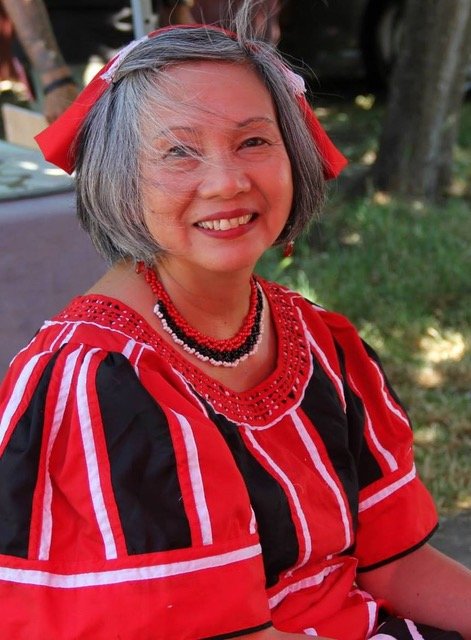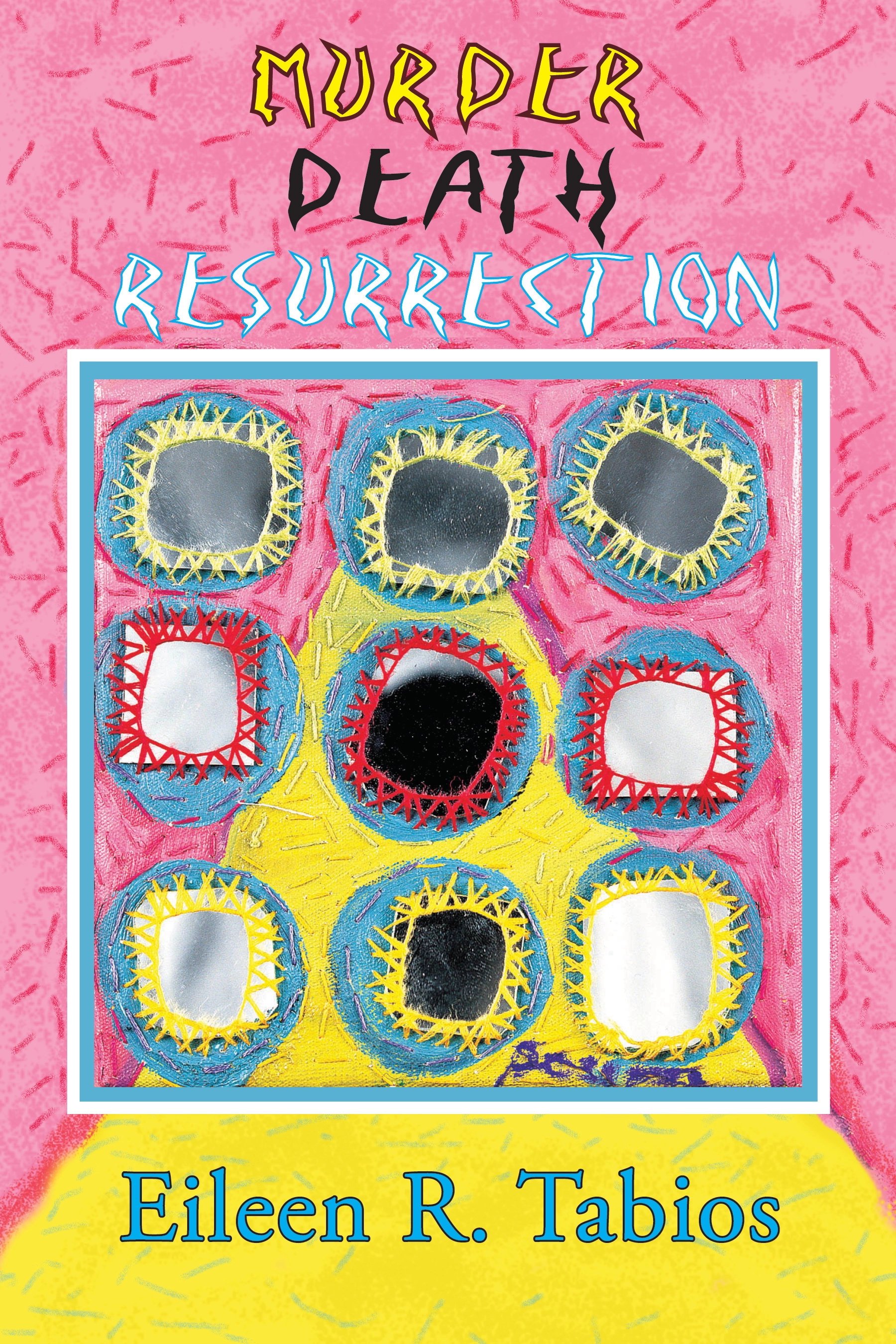

Esquire: 10 Filipino Female Authors to Read This Women's Month
Strobel explores the Philippines' glorious culture before the colonizers arrived. In pre-colonial Philippines, gender fluidity wasn't taboo and Babaylans were the epitome of glory.

Vogue: 10 Books On The Filipino Experience
There has been a growing awareness over the past few years not to neglect the rich history of our pre-colonial past. This increasing interest in our indigenous cultures is discussed in rich detail in the book Babaylan, edited by Leny Mendoza Strobel, which offers insight into beliefs around healing spirits, Kapwa psychology, and non-conforming gender.

Jean Vengua Reviews Leny Mendoza Strobel's "Zen of Doodles" and "Glimpses"
A book review written by Jean Vengua of Glimpses and Zen of Doodles:
In 2016, Leny M. Strobel began using Zentangle to create drawings; some of these drawings went on the cover of her book, Glimpses: A Poetic Memoir (Through the MDR Generator) in 2019. Similar to how I’ve just been starting to focus on basic line and shape in my agimat drawings, she said she found it useful for “getting my mind out of my way.” Part of my own project is also to let the drawing tell me something, and to reduce my “plans” for any one drawing to a minimum.

Justin Jones: Black, Filipino, Civil Rights Activist
Justin Jones, a young Black and Filipino activist, reached out to me in late 2019, asking if I could help him lament the harm caused by anti-Black attitudes in the Filipino communities he grew up in. He wanted to embrace his pagka-Pilipino (Filipino-ness) as much as he embraced his Blackness. So, I introduced him to a few of the Black and Filipino scholars/culture-bearers in my circle, and I hosted a healing session on Zoom for him…

EXCHANGE WITH EILEEN R. TABIOS ON DOVELION: A FAIRY TALE FOR OUR TIMES (AC Books, 2021)
Leny Mendoza Strobel: Your novel DOVELION: A Fairy Tale for Our Times (AC Books, 2021) is expansive—art, poetry, history, shadow material, colonial adventures, love, ideologies. How did you decide on what kind of character would best embody these vast themes?
Eileen R. Tabios: In a way, I didn’t decide; the novel itself did—I approached the novel as I do a poem and so, as with the poem, the work wrote itself…

The Next Somewhere: 16 Books by Filipina Authors You Should Read
In pre-colonial Philippines, Babaylans communed with spirits of nature and the world beyond. These revered shamans were almost always women or feminized men, becoming a modern symbol for non-conforming gender. In this anthology, decolonizing scholars, artists, poets, cultural theorists, and anthropologists offer insights as to how to call back the healing spirit and wisdom of the Babayalan. The tome is rich in spiritual and cultural capital and provides a framework to tap into Kapwa psychology, the fundamental Filipino belief that all Filipinos share kinship as human beings.

The Halo-Halo Review: POST-BOOKS—LENY MENDOZA STROBEL
The Halo-Halo Review is pleased to interview authors in the aftermath of their books' releases. This issue's featured authors include Leny Mendoza Strobel.

Book Review: DOVELION—A Fairy Tale for Our Times—Eileen R. Tabios, From Poet to Novelist
Eileen R. Tabios is a prolific writer, and writer across genres. She’s released over 60 collections of poetry, fiction, essays, and criticism from publishers in 11 countries; this year she also is scheduled to release French translations of her writings in France. But despite the abundance of her publications, it required 20 years for Eileen to accomplish her first long-form novel, coming out April 2021.
DOVELION is an inventive, multi-layered novel featuring a poet, Elena Theeland, as she overcomes the trauma of her past. Theeland ends up raising a family who overthrows the dictatorship of the novel’s fictional country of Pacifica. She is aided by artist Ernst Blazer whose father, a CIA spy, instigated the murder of Elena’s father, a rebel leader. As her family frees Pacifica from the dictator’s dynastic regime, Elena discovers herself a member of an indigenous tribe once thought to have been erased through genocide. That discovery reveals her life to epitomize the birth of a modern-day “Baybay” modeled after the “Babaylan,” an indigenous spiritual and community leader of the Philippines.

The Scholar Unplugged: Book Review of Glimpses: A Poetic Memoir by Leny Mendoza Strobel
Glimpses: A Poetic Memoir by Leny Mendoza Strobel shows a more personal side of the noted academic, a departure from her usual scholarly output. Glimpses is still infused with plenty of academic language characteristic of Strobel’s voice, despite her having declared herself “free from the obligatory academic language, citations, footnotes and such.”
Strobel’s prosaic musings riff off prolific author Eileen Tabios’ book Murder, Death, Resurrection (Dos Madres Press, 2018), a 1,167-line poem culled from her earlier poetry books. Tabios puts to death (the “Murder” in the title) earlier works with the notion that in resurrecting them in new forms -- through what she names the MDR Generator -- a reader might be able to select any number of these lines and create a new poem.
Turn to any page in Glimpses, no matter the personal revelation within, and you will also learn of Strobel’s impersonal insights, almost always with an eye toward the broader picture beyond the moment. Line 537 of (MDR), “I forgot strolling outside to hear trees murmur” (p.65), is followed by Strobel’s observation that “Trees murmur. Trees sing. Trees dance…Both science and indigenous knowledge agree on interspecies communication.” Simply looking leads inevitably to seeing: “My intellectual work opened up to indigenous scholarship and there came a time when my body longed to experience this knowing that everything is alive and interconnected.” She goes on to share that she became a tree hugger and then… a Tree.

Racial Justice Allies of Sonoma County: A Review of Leny Strobel Mendoza’s Poetry of Decolonization By Christopher Bowers
In Glimpses: A Poetic Memoir (Through the MDR Generator) Filipino-American author, academic and local community leader Leny Mendoza Strobel takes an arguably more personal approach to this work than in her previous writing. However, as the reader soon learns, the distinctions between the personal and the political, between poetics and polemics, and between the individual and the social world in which individuals operate are all just more cultural assumptions worth challenging. For example, her memories of young love and high school experiences are not disconnected from the forces of globalization nor oppressive experiences of hierarchy. Her poetry is a reflection of a thought process always questioning the foundations on which it was formed. The result is an unflinching look at how personal memories and personal dreams can affect and are affected by culture, spirit, and society. After all, she says, “I do not have an I without You”.

The Halo-Halo Review—MAILEEN DUMELOD HAMTO Engages GLIMPSES: A POETIC MEMOIR by LENY MENDOZA STROBEL
Hello po, Ka Leny:
It’s a beautiful thing, reading Glimpses, reading your words and thoughts, freed finally from the confines of academic writing. Over the last few years, you’ve expressed anticipation of retirement: walking away from the demands of an academic life. In your social media posts, it’s apparent that you find absolute joy in embodying kapwa: exchanging ideas with your Filipino American students, inviting them to dig deeper into their wonderings about and wanderings into decoloniality.

Asian Journal: The Wheatfields of Leny Strobel’s Memoir
IF you have walked the Camino de Santiago, you will come across acres and acres of wheatfields. The wheatfields have no shade and you will see colors of yellow-brown as far as the eyes can see on the horizon. They are called mesetas or plateaus found in the high plains of central Spain. You will also find irrigation dams constructed, of course descending columns of water to irrigate these wheatfields.
The pages in Leny Mendoza Strobel’s memoir, “Glimpses: A Poetic Memoir (Through the MDR Generator),” struck me as this plateau of wheatfields. Read the pages, and embedded are nuggets of her observations, experiences and reflections. The memoirs are easy to read, a page at night gets you to discover what she has gone through in her childhood, but not replete with detail, it leaves you to imagine what is embedded in those wheatfields, or when she describes a camping trip, she hints at the joy she gets in moving freely in a dance.

North Fork Arts Project: LENY M. STROBEL—"THE ZEN OF DOODLES"
EILEEN (ET): Please share the background to these doodles or sketches. How did you come to start making them?
LENY (LS): I started these doodles in 2015 around the time that Zentangle was trending. I have a relative who was into it and she got me interested. I was also in recovery from a medical condition that required me to slow down and be quiet. These doodles were my way of getting my mind out of the way.

Book Review: Murder Death Resurrection: A Poetry Generator—by Eileen R. Tabios
A gift of a Journal. A Poem with over a thousand lines. A gift published as a book: MURDER DEATH RESURRECTION (MDR) by Eileen R. Tabios.
Eileen’s promise: You can randomly choose however many lines and put them together to form a new poem. And if the poet is successful, the new poem will be beautiful!
In another journal, I did just this and I was surprised that this promise is true. I wrote about it HERE. Then I decided to begin a new journal for writing a one-page entry every day in response to a randomly chosen poetic line; I planned to do a free-write following what feelings, images, memories, stories the words evoke.
For three months, before going to bed, I made a date with Poetry.

Yogi Monica Anderson
I've never joined a gym in my life. The ambience just never feels right to my Filipina sensibility. So, when I walked into Tone Fitness Studio in Santa Rosa, California a year ago, something felt different. The place is warm and inviting. I noticed the sacred altars in various corners. I took note of the long counter where the members bring in flowers and produce from their gardens to share. I took note of the smiling faces of the staff. When I met the owner, Monica Anderson, something clicked. Of course, I thought, this third-generation Filipina American business owner knows how to build community.
When I asked if I could interview her for this piece, there was a long pause. She says that she feels uncomfortable talking about herself to a large public. But she felt that this was something she could do for me. I told her that we would trust the Universe and her purpose (in giving me the idea and the permission Monica grants me) to be revealed in time.

INQUIRER.net: Dr. Leny Strobel’s Journey of Self-Discovery
She is a professor, an eminent scholar, author, activist, a babaylan-inspired woman and a lot more. But she also calls herself a “settler” and a “colonized person,” and she has embarked on a long and arduous journey to unlearn 500 years of colonial influence, which had shaped her consciousness and identity.
This is the process of “decolonization,” a word that did not circulate very much in the Filipino community in the United States in the early ‘90s.
“When I was decolonizing, I became aware of the insidious and unconscious messages I was internalizing–our ‘inferiority,’ our brownness, our need to be ‘improved and corrected’; our need to be whitened. For a while, I even bought whitening products for my face,” she says.
The journey of Dr. Elenita Fe (Leny) Luna Mendoza-Strobel, professor at the American Multicultural Studies Department of Sonoma State University and Project Director of the Center for Babaylan Studies, is far from over.